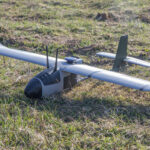The Defense Advanced Research Projects Agency (DARPA) has selected 10 defense and university research teams to develop lightweight, state-of-the-art night vision optics for American soldiers.
As part of the Enhanced Night Vision in Eyeglass Form (ENVision) program, the new technology should leverage recent advances in planar optics to develop night vision systems that do not require bulky image intensifiers.
Current night vision optics are comparatively large and weigh about two pounds (0.9 kilograms) on a helmet, making it difficult for users to turn their necks. Present military goggles also provide a narrow field of vision and are limited to near-infrared spectral bands.
The enhanced night vision technology the US Army hopes to acquire must provide a wider field of vision, offer improved visual access, and be lightweight to reduce neck strain and improve the agility of soldiers.
“Ounces equal pounds, and pounds equal pain,” Marine Sgt. Jarod Chambers explained in 2016 concerning the importance of lighter military equipment. “So, the less ounces you’ve got, the less pain you’re going to have.”
Two Technical Areas
DARPA announced that it has selected five teams to work on the first technical area of the ENVision program.
Under this area, the teams will be tasked to develop multi-band, wide field of vision planar optics and planar image intensifiers to allow the advanced night vision system to impose “near-zero torque” on the users.
Raytheon Technologies, Physical Sciences, SRI International, the University of California – San Diego, and the University of Washington have been tapped to work on this segment of the program.
Meanwhile, DARPA said that the second technical area focuses on exploring new methods to amplify photonic up-conversion processes to enable future “intensifier-free” night vision systems.
Raytheon and research teams from Stanford University, University of Central Florida, University of Melbourne, and the University of Pennsylvania will be responsible for this part of the project.
“These efforts could potentially lead to all-optical night vision systems in the future without the need for image intensifiers,” ENVision program manager Rohith Chandrasekar remarked.




